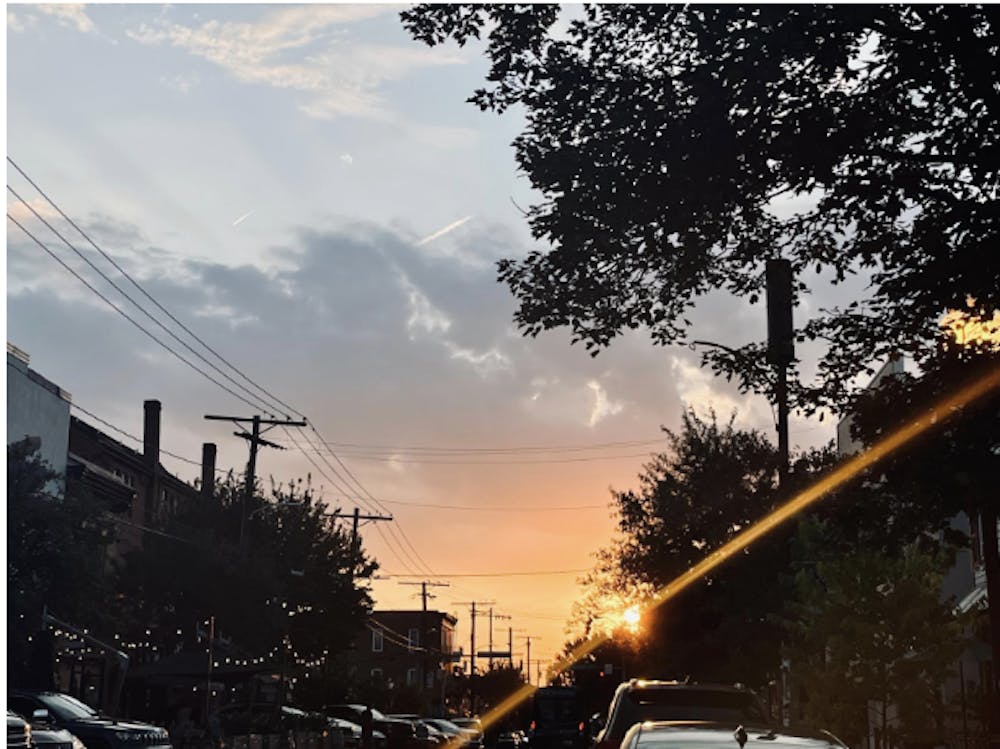
Am I doing this right? This question trailed me throughout high school, as I revised a single email twelve times or stared blankly at my math test. As an overthinker, I let that mantra play on repeat.
For years, I steadied myself with one of my favorite quotes by Maya Angelou: “Do the best you can until you know better. Then, when you know better, do better.” Mistakes were always temporary. If my email came off too stiff, I softened the next one with exclamation points. If I froze in a presentation, I tried to redeem myself in Q&A. I trusted — maybe naively — that knowledge would catch up with experience, that second chances would arrive naturally.
Then, this summer before coming to Hopkins, I read All the Light We Cannot See by Anthony Doerr. Suddenly, my confidence felt fragile: is there even a “right thing” to find?
I admired the blind protagonist’s father, who measured entire cities with his steps so he could rebuild them in miniature — offering her the world in wood and dust. Yet, despite his devotion, he was slightly terrified:
“There has always been a sliver of panic in him, deeply buried, when it comes to his daughter: a fear that he is no good as a father, that he is doing everything wrong. That he never quite understood the rules… How do you ever know for certain that you are doing the right thing?”
That final question still refuses to leave my mind. I’ve recognized the suspicion in myself that everyone else has a handbook for knowing what to say and when to smile, and I don’t even know where to find it. For the first time, Angelou’s words felt empty to me because what if we never know better? What if we’re always just guessing?
I entered college believing in my ability to create and reinvent myself, and the stakes seemed high. When would I get another chance to have a completely clean slate? At the Student Involvement Fair, I wandered with bated breath, collecting fliers and scanning GroupMe QR codes. Each table felt like a gamble: Is this where I’ll find “my people”? My secret talent or new obsession? Or will it be a waste of time? Am I doing this right?
Many nights since have ended the same way — with GBMs in fluorescent classrooms, playing icebreakers where I tell yet another group that my favorite fruit is pineapple, only to leave without learning anyone’s last name. I interviewed for clubs, seeming rehearsed and polished on paper, but hollow inside. A “Congratulations!” email arrives, but it tastes bitter instead of sweet as I block off another chunk of my Google Calendar. Am I doing this right?
Sometimes I say no. I step away from a commitment, convinced I can’t give it my all. Relief is short-lived — then regret creeps in: what if that was the night I could have fallen in love with dance or painting or tutoring? What if that was the room where I was meant to find someone who would change my life? Definitely not the right thing.
Relationships have become guessing games too. A friend whispered to me over FaceTime from a library hundreds of miles away while I yelled from a cafeteria line, our words shrunk by distance and noise. “I miss you,” I typed later, but the phrase looked flimsy, careless, too easy. Am I being the right kind of friend?
So what do you do? Say yes to everything, just to cover your bases? The thought is exhausting, unsustainable, but the alternative — missing the “right thing” — is unbearable. I’m tormented now by the fear that maybe there won’t be a time to know better later, that I must absorb everything as quickly and completely as possible.
That fear has driven me to many places this semester. The best of them: A Place to Talk. Tracking the nuances of my nods and smiles, I find myself asking again: Am I doing this right? This time, the question nudges me forward. I crave the impossible goal of being the perfect listener. In training, I catch myself wanting to fill silence after just a few seconds, but my trainers remind me to hold the pause until it feels uncomfortable, and then longer still. Week by week, I learn I can rewire myself to resist impulse, lean into discomfort and listen better than I did the minute before.
“Do the best you can until you know better. Then when you know better, do better.” For years I took these words as reassurance that there would always be another chance, another lesson, another tomorrow to improve. But, college has raised the stakes and stripped away the illusion of infinite do-overs. The clean slate may never come again.
Now, Angelou’s gentle pardon of you’ll know better eventually has sharpened into a demand: you must strive to know better now. Knowing better is not a gift that arrives in hindsight, but a practice to be pursued daily and deliberately.
We must resist idling in ignorance, keep reaching, questioning, chasing what unsettles us. The task is not to wait for hindsight but to act with foresight. Instead of telling ourselves “I’ll do better next time,” we must ask “How can I do better right now?”
Vidhi Bansal is a freshman from Upper Saddle River, N.J., studying Neuroscience. In “Meanwhile,” Bansal finds meaning in the unfinished and the unglamorous, showing how the in-betweens are often where life actually happens.





